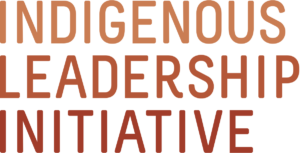Water is Life-Guardians Honour the Sacred Responsibility to Care for Waters
May 31, 2023
By Frank Brown
The Heiltsuk Guardian Watchmen originate from ancient ethic of taking care of water and land because we know it takes care of us through meeting our sustenance needs. Within our aquatic environment guardians monitor various species such as herring, salmon, shellfish and other marine research.
As place based coastal first people, our relationship with marine life is fundamental to our society and culture, and so our Guardian Watchmen devote much of their time to monitoring and protecting these salt waters. But after participating in the First Nations National Guardians Gathering in Ottawa recently, where over 250 Guardians from across the country spoke about their work, I was reminded that water is central to Guardianship from coast to coast to coast.
Whether we live near oceans or rivers, wetlands or lakes, Indigenous place-based peoples understand the life-giving force of water. We know water is sacred, and we know water connects us to each other, to our places, and to the planet.
This knowledge is more important than ever, as the planet faces the dual challenges of climate change and loss of biodiversity. Reverence and respect for water is one of the most profound lessons the Indigenous worldview can share with a westernized society distracted by materialism.
Western science is fairly young compared to ancient Indigenous societies, but it is coming up to speed and validating Indigenous world views around the interconnectedness of all things.
I was recently rereading the book, the Sacred Balance: Rediscovering Our Place in Nature by David Suzuki where he explains that 71 per cent of the planet is covered by water: “The land masses are merely bumps on the surface of the water,” he writes. “Although we live on the land, we are creatures of water,” he writes. Suzuki tracks a water molecule through aquifers into the atmosphere, down to earth again, into the air we breathe—literally becoming part of us.
Suzuki reflects on the multibillion years and complex galactic and geological forces it took to create the biosphere we live within and the water molecules we depend upon. If we don’t recognize how rare and unique this planet is, if we don’t hold it up with love and respect as sacred, we will erode its lifegiving capacities. Humans have already done significant damage by polluting the waters and pumping carbon into the atmosphere. That’s why Indigenous-led stewardship is imperative right now. This approach reflects our interconnectedness and the reality that what we do to the water, we do to ourselves.
Guardians programs offer an essential way for Indigenous Nations to honour the responsibility to care for water. As Indigenous stewards, Guardians combine traditional knowledge with the best of western science to sustain waters we all depend on. Guardians programs have protocols that draw on local, traditional knowledge and the collective memory of the people, and they build on this foundation to monitor and report systems changes.
We see the changes in our places. In Heiltsuk territory, for instance, we see how the warming of ocean impacts cold-water species like salmon and herring. We see the increase in ocean acidity making it harder for shellfish to build strong shells and atmospheric rivers flowing from the pacific ocean destroying salmon spawning habitat, land slides and flooding. We witness the other extreme drought like conditions negatively impacting cedar trees “tree of life” inner bark that weavers depend on.
We have to restore the balance. We have to create areas where the salmon, crab, and herring thrive, and we have to sustain intact ecosystems for the renewal of the species.
Being able to observe and report changes in the sacred balance of our places is essential for creating mitigation strategies. Having Guardians on the water and having marine protected areas and Indigenous Protected and Conserved Areas are necessary for creating refugia where species can adapt and thrive.
It’s inspiring to know that over a thousand Guardians are watching over marine and freshwaters across the country, gathering the knowledge and data that informs how our Nations address climate change and sustain biodiversity. It shows that Indigenous place-based people are stepping up to the call to assume the responsibility as the stewards of the water and the land.



